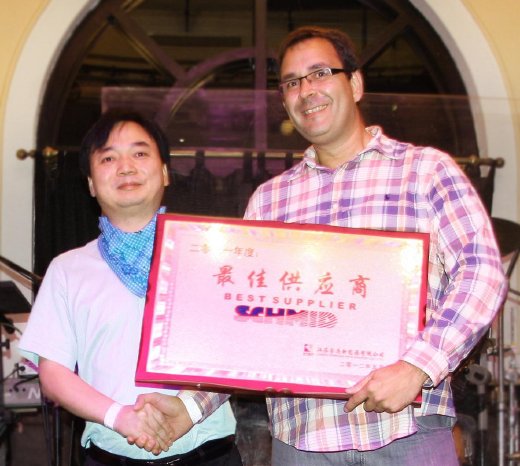- German supplier equips Chinese startup company with Selective Emitter technology.
- Rongma is especially satisfied with system performance, project planning and on-site service.
During the 6th SNEC in Shanghai the Chinese startup company Jiangsu Rongma New Energy Co., Ltd. awarded the SCHMID Group among many other inland and foreign companies as the best supplier.
Rongma New Energy has been established since early 2011 and is running a high-tech cell production including research and development and technical service since December 2011.
Lu Hua, general manager of the Rongma Group, gave credit to the SCHMID Group for equipping the automatic production line with systems for Selective Emitter masking and etching, namely the SE Jet and the wet bench equipment. For the best possible cost benefit the wet bench equipment also includes modules for edge isolation and PSG etching. Besides the system performance Rongma was especially satisfied with SCHMIDs careful project planning and excellent on-site service.
With the new systems Rongma New Energy now reaches an average efficiency of 17.1% on polycrystalline cells. With very good wafer quality even peak values of over 17.8% and average values of 17.3% could be reached at considerable cost advantages.
Christian Schmid, CEO of the SCHMID Group, stated it was an honor to be awarded by Rongma New Energy and expressed his gratitude to Rongma as well as to all other customers for their trust in SCHMIDs technology and services. He assured everyone that SCHMID will keep up its high standards and will set new benchmarks with technical innovations. An actual example for that is SCHMIDs production-ready TinPad technology that enables cell or module manufacturers to fabricate silver-free cell backsides.
Over the years the SCHMID Group has consistently received awards by Chinese customers and has established an excellent reputation in the market. The recent achievments are based on the high acceptance of the wet bench Selective Emitter technology that holds the highest market share in mass production with 6 GW of installed capacity.

